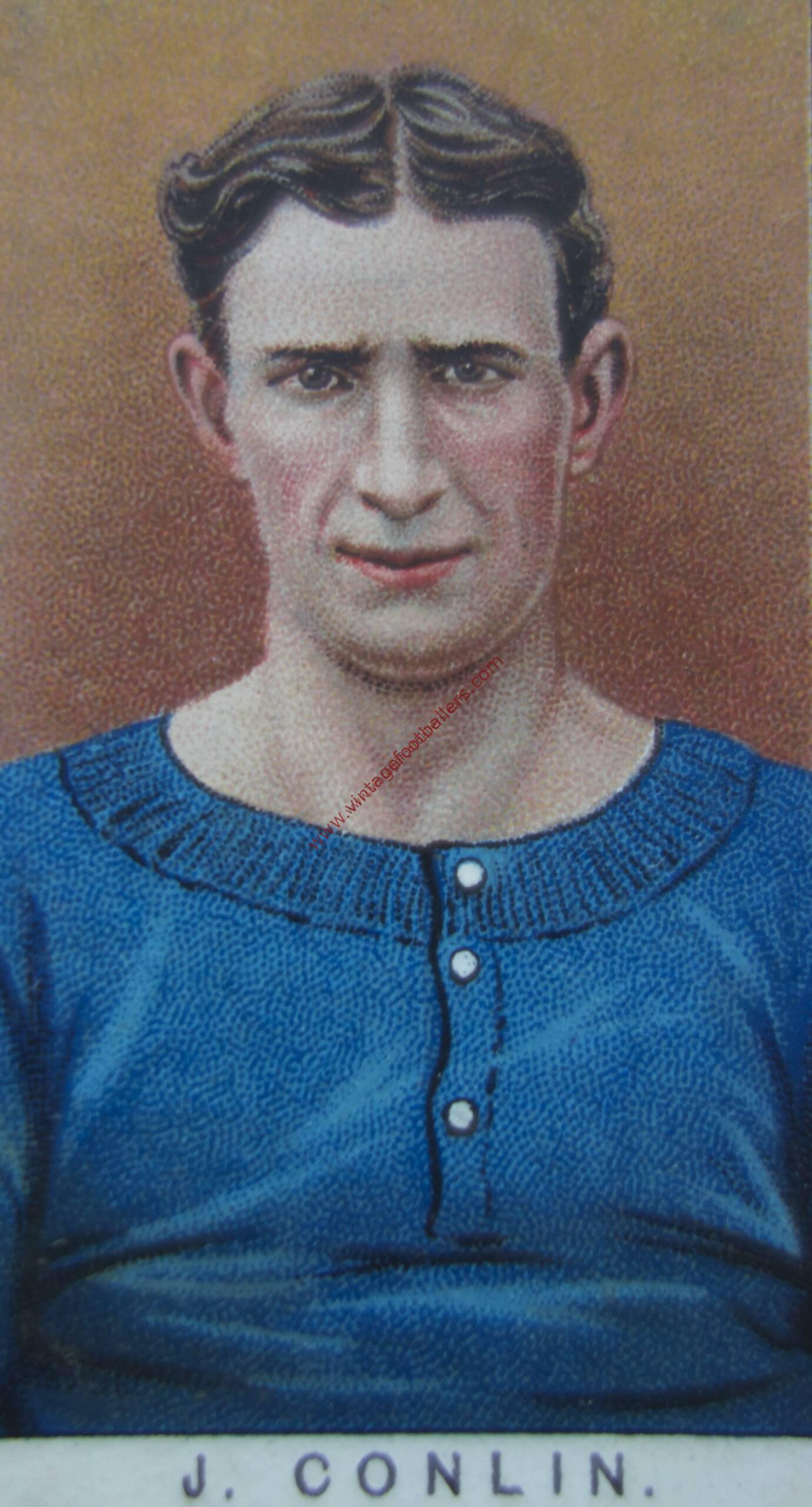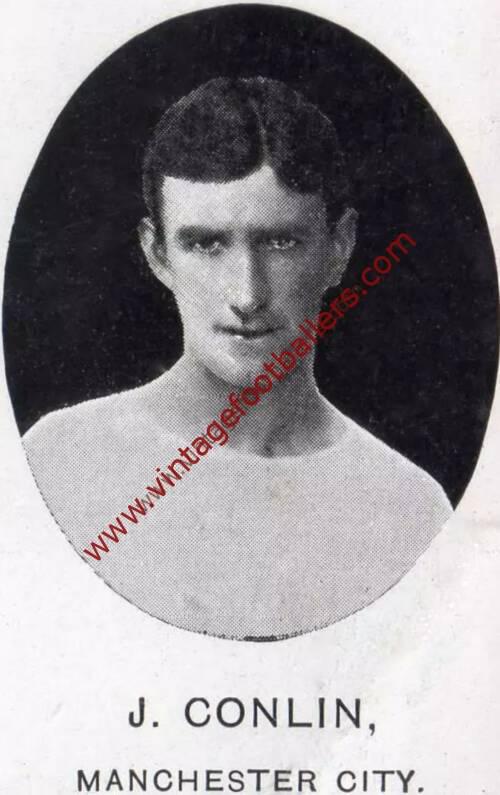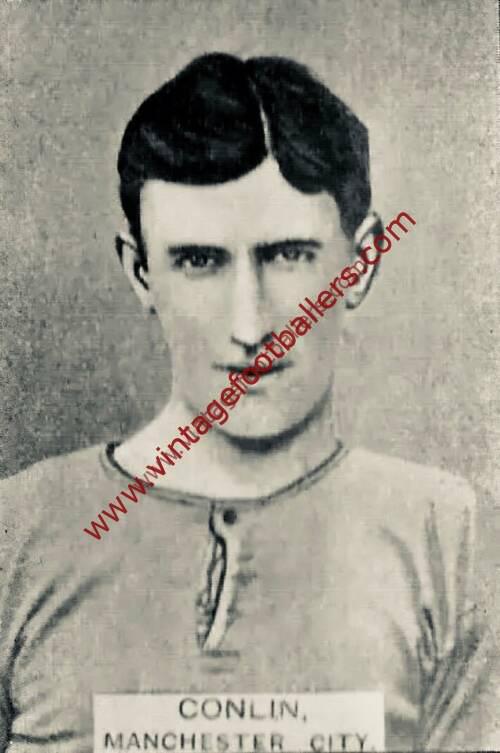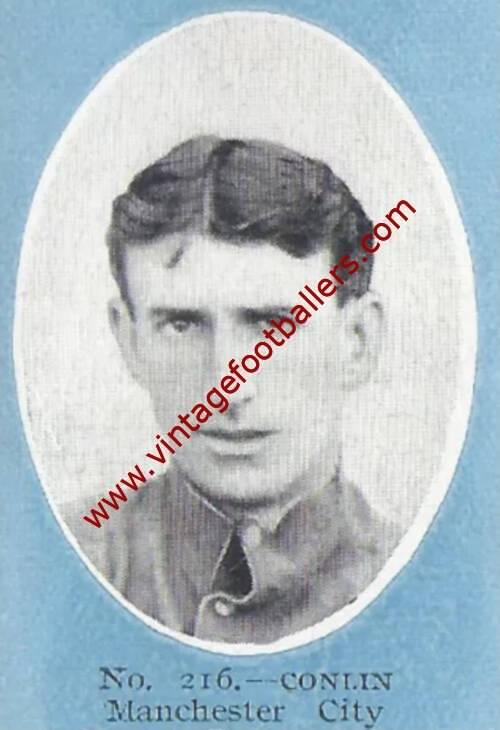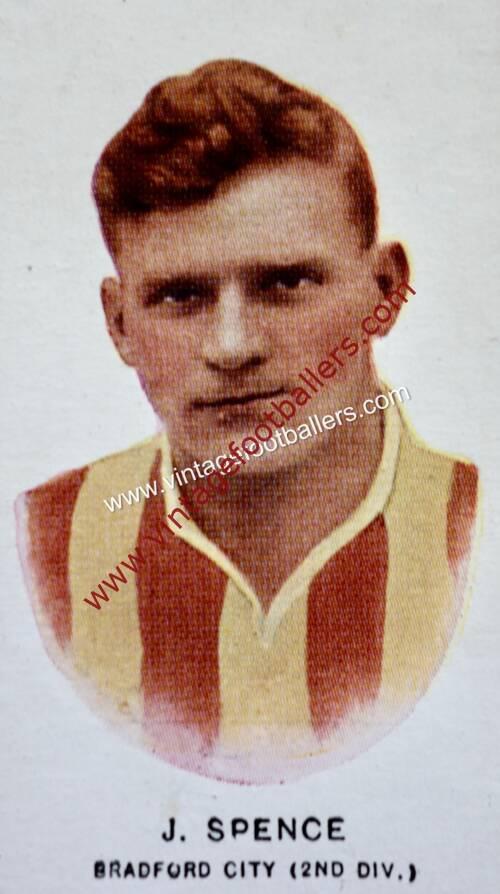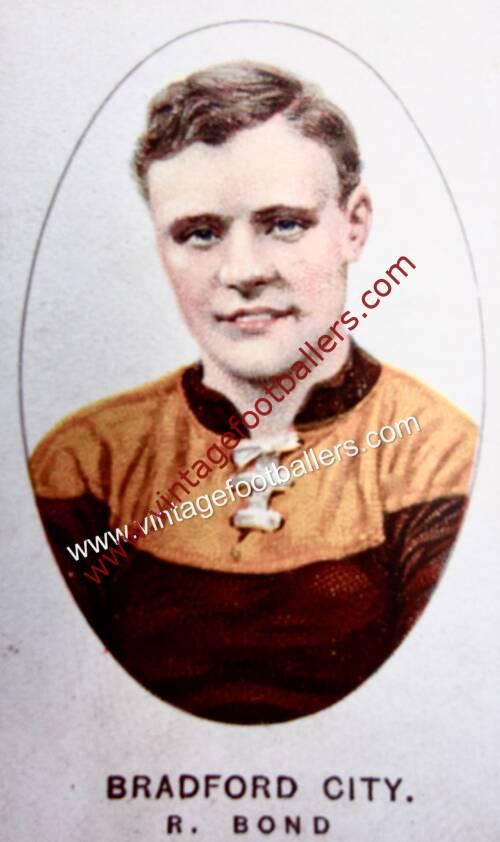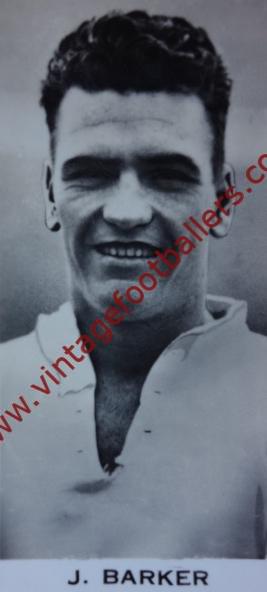Description
Born in Consett, County Durham, outside left Jimmy Conlin and his three younger siblings was raised in the Lanarkshire area and began his football career playing in the Lanarkshire North Western Junior Football League with Captain Colt’s Rovers in 1899. From there he moved to league rivals Airdrie St. Margarets and then on to the Glasgow Junior Football League side and Cambuslang in 1900. From Cambuslang he joined Hibernian in 1901, moving on to Falkirk in 1902. Conlin scored 7 goals in 17 League appearances, and 11 goals in 25 appearances in all competitions. On 14th March 1903, Conlin transferred from Falkirk to Albion Rovers (who played in the Scottish Football Combination League), at which point his career and national notoriety as a supremely talented left winger began to take off.
At Rovers, Conlin won the Scottish Football Combination Championship and also secured Rovers an election to the Scottish League Second Division. Rovers also reached the now defunct Lanarkshire Cup Final, but lost this derby game 3-0 to Hamilton Academical. Once he was playing in the Second Division, Conlin caught the attention of scouts from a number of English clubs, and at the end of the 1903-04 season Conlin was transferred amid great controversy to Second Division club Bradford City for a fee of £100, but only after The Bantams had been fined £50 by a joint committee of English and Scottish F.A. officials for making an ‘illegal’ approach for the player.
At Valley Parade Conlin made his Football League debut in a home win against Burslem Port Vale on 24th September 1904. The Bantams finished eighth in the division that season, and in his second season with the club they finished eleventh. While at Bradford Conlin became the first City player ever to be sent off when he was dismissed during a 6-1 defeat at West Bromwich Albion on 11th November 1905. Conlin also became The Bantam’s first England international on 7th April 1906, playing as Scotland beat England 2-1 at Hampden Park, Glasgow in front of a 102,741 crowd, which set a world record for an international match attendance.
Another of the more notable events in Conlin’s career occurred during his time at Valley Parade. He was at the centre of an infamous incident involving Manchester United’s right back, Bob Bonthron, in a 1-5 home defeat played on 10th February 1906 during the latter club’s promotion season. Both players had a reputation as being combative players; Conlin was tricky and feisty and Bonthron strong and burly, and they repeatedly clashed during the game. Bonthron’s continual rough treatment of Conlin enraged the home crowd with the result that after the game he was attacked by some of the home supporters and the United team was pelted with missiles as they left the stadium. This incident made national news headlines. Criminal charges followed against the perpetrators, and a subsequent F.A. inquiry resulted in the temporary closure of Bradford City’s Valley Parade ground for the first two weeks of March 1906. During his two seasons playing for Bradford City, Conlin scored 10 goals in 67 appearances in all competitions.
On 13th July 1906 Manchester City paid £1,000 to secure Conlin’s services, which was only the second time in the game’s history that such a large transfer fee had been paid. His debut for The Sky Blues, against Woolwich Arsenal on 1st September 1906, was a somewhat bizarre event as this first home fixture was played during a freak national heatwave. Played in temperatures of 91 °F (33 °C) in the shade and 125 °F (52 °C) in the direct sun, the match saw several Manchester City players retiring from the game due to heat exhaustion. At one point the home team was reduced to having only six men on the pitch. Conlin himself was one of two City players who collapsed from the heat during the first half. However, he gamely returned for the second period of play with a knotted handkerchief on his head to better protect himself from the sun, but was still unable to help his depleted side from losing 4-1. In Conlin’s first season playing for Manchester City the club finished 17th in the First Division.
In Conlin’s second season at Hyde Road the results were much better, with the club finishing third in the League Championship. However, his third season at the club saw Manchester City finish 19th in Division One and they were relegated. Conlin was a Second Division Championship winner in 1909-10 as Manchester City immediately returned to the top flight.
After five seasons in Manchester, his longest period at any club, in which he scored 30 goals in 175 appearances for City, Conlin signed next for Birmingham City on 29th September 1911. His stay at St Andrews was plagued by injury and he only made 23 appearances for the Second Division club, scoring twice. On 30th July 1912, Conlin moved on again for a transfer fee of £150, this time returning to the area east of Glasgow where he was raised to play for Airdrieonians in the Scottish League First Division. This move wasn’t all that he might have hoped for, and on 7th October he was fined £2 10s for failing to turn up for a game. A brief period of triumph followed this setback, with Conlin’s team beating Dykehead 5-1 to lift The Lanarkshire Cup on 30th December 1912.
Unfortunately, Conlin’s off-field issues resurfaced and he failed to turn up for several training sessions. On 4th February 1913, after admitting to having a drinking problem, he was fined again and severely warned about his behaviour. This appears to have had little effect, because on 15th April 1913 Conlin was suspended sine die and transfer-listed by the club after 27 appearances for Airdrieonians. On 13th August 1913 Conlin made his final club transfer, joining Broxburn United who had finished bottom of the Central Football League in the previous season. Broxburn United were a new club, formed in 1912 from an amalgamation of the small town’s two major clubs, Broxburn and Broxburn Athletic, and with Conlin on board the team finished in mid-table in the 1913-1914 season, although it is unclear how much Conlin contributed to the team’s achievement.
After the outbreak of the First World War, Conlin enlisted in Coatbridge with The Highland Light Infantry, serving in the 15th (Service) Battalion (1st Glasgow). During June 1917 this battalion was transferred to the Nieuport sector on the Belgium coast in readiness to support the British offensive at the Third Battle of Ypres (also known as Passchendaele). This is where Private Conlin (26447) was killed on 23rd June aged 35, leaving behind a wife and two small children.

